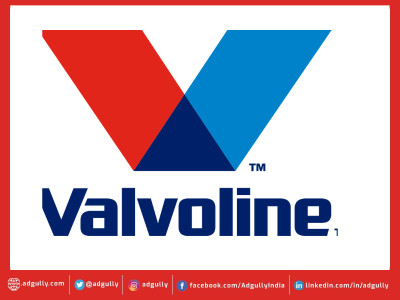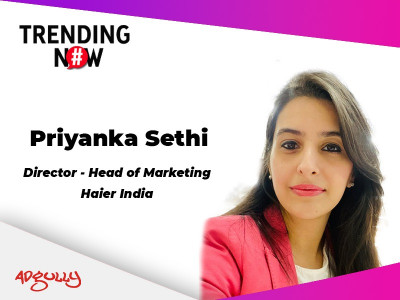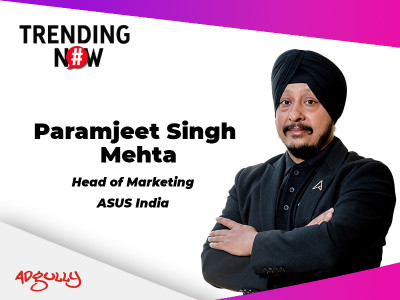Popularity is not equal to leadership: Ipshita Chowdhury
We, at Adgully, have always saluted and honoured women managers and leaders across diverse fields. W-SUITE is a special initiative from Adgully that has been turning the spotlight on some of the most remarkable women achievers in the M&E, Advertising, Marketing, PR and Communications industry. In the refurbished series, we seek to find out how women leaders have been managing their teams and work as well as how they have been navigating through the toughest and most challenging times brought about by the global pandemic.
The 4th edition of Women Disruptors is all set to return soon. This initiative from Adgully endeavours to highlight the trailbrazing women leaders in India. Entries are now open. Click here to send in your nominations.
In conversation with Adgully, Ipshita Chowdhury, CMO, Valvoline Cummins, speaks about how the role and scope of women leaders have widened in various ways, why slowing down may not be a bad idea, her success mantra, and more.
How do you think the role and scope of women leaders have widened in the current market ecosystem?
It is a journey, and we are well on our way. The role and scope have widened in various ways, traditionally male-dominated industries and roles are slowly but surely witnessing an infusion of gender diversity, many frontline sales roles for example, wherein till some time back one couldn’t imagine women, are seeing a transition. Digitization and changing face of business operations has enabled this to a large extent. Significant leadership positions are also now seeing more women stepping in, though here I still think we have a long way to go. The fraction of women from middle to senior management is quite stark even now.
What has been your major learning from the pandemic period?
One of my major learnings from the pandemic period has been, slowing down may not necessarily be a bad idea. The pandemic for me altered my perspectives and gave me a lot of clarity on the important vs the urgent. One critical work learning has been the importance of genuine care, empathy, and lookout for our teams, partners, and influencers on ground. A seemingly non-transactional, people-first approach can prove to be a prudent choice and beneficial for business in the long term.
What is your mantra for maintaining a successful work life balance in the new normal? According to you, what makes women the best in crisis management?
My mantra is ‘keep it simple’ and do not shy away from reaching out for help. In my experience, women take on a lot upon themselves and try to be perfect in everything, a lot of guilt plays around at the back of our minds. It is important to shed this mindset and first and foremost acknowledge that we cannot do everything on our own, we are not superhumans. Things will be imperfect, sometimes fall apart and that is absolutely alright. The pandemic and the new normal only reinforced this belief of mine.
Crisis management, I believe, comes naturally to us, because women inherently can multi-task better and visualise multiple scenarios in one go, more effectively. We approach problem solving with a head-heart balance, which is an efficient way of handling crisis situations, in my view.
What are the five most effective leadership lessons that you have learned?
- First, popularity is not equal to leadership. One may be the most popular within a team or organisation, however, affability may not necessarily make you a good leader. Leadership entails making hard calls that may be unpopular, but effective for business.
- Second, situational leadership is everything, it’s a cliché but it is true, a leader can emerge out of the most unexpected of scenarios and can be hierarchy agnostic.
- Third, always be authentic, people trust vulnerable leaders more. As a leader, have the courage to say, ‘I messed up’ or ‘I don’t know’, the most effective leaders I know are also the most human.
- Fourth, empathise genuinely. Have honest heart-to-heart conversations and stretch an extended arm when needed. Always remember, people work for people first, then the organisation. Your teams are seeking inspiration and that’s your role.
- Lastly, never lose an opportunity to mentor/ coach, I see so much young talent around me and all they sometimes need is a little nudge in the right direction. So be that nudge, hugely gratifying to see what that can do, as leaders if we can help create more for the future, what can be more satisfying than that?
Gender sensitivity and inclusion in the new normal – how can organizations effectively encourage and groom women leaders in challenging times?
Have a mechanism to first and foremost listen effectively to what they are saying and what they actually need. Many times, efforts around inclusion and diversity are superficial and do not necessarily address the real need. Apart from working from home & flexibility in hours, all that women at work may be needing is a genuine attempt from management to curb unconscious biases and unfavourable pre-conceived notions. Make an effort to address these real challenges, most of them are an outcome of our social conditioning. Setting examples around these can become hugely motivating & help groom many young women at the workplace to become great leaders of the future. Bringing equity in providing opportunity is the first step towards building true inclusion.

















Share
Facebook
YouTube
Tweet
Twitter
LinkedIn